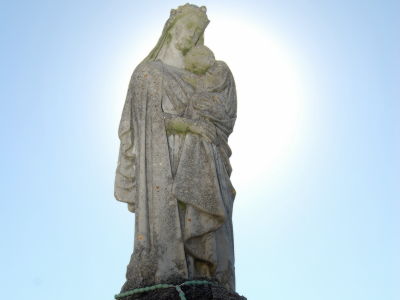Why does Leap Day come in February instead of December?

Roughly every four years, a 'leap year' is set to align the Gregorian calendar commonly used in modern society with the movement of the sun. However, in leap years, a leap day is inserted on February 29th. Modern people may wonder, ``Why don't we insert December 32nd at the end of the year?'', but Rebecca Stevenson, who teaches Old English at University College Dublin, explained this mystery.
The leap year is February 29, not December 32 due to a Roman calendar quirk – and fastidious medieval monks
The question of why Leap Day is inserted at a halfway point in the year has two simple and complex answers. The simple answer is, 'February used to be the end of the year.' According to Mr. Stevenson, some cultures, such as ancient Rome, believed that ``the world was created in spring,'' and for this reason, a leap day was inserted at the end of ``February,'' when the year started in spring. It seems that it was done.
Originally, leap day was added on February 24th, not on the 29th. It seems that one day was added between the usual 23rd and 24th, and the 24th actually came twice. There is a theory that the name 23rd comes from the fact that Terminalia , a festival celebrating the end of the year, was held on February 23rd. Later, with the introduction of the Gregorian calendar, February 29th became a leap day worldwide.

By the way, in English, a leap year is called 'leap year,' but there is another way to say it: 'bissextile.' It comes from 'bis' which means 'twice' and 'sextus' which means 'sixth'.
The Romans designated the days of the new moon as the beginnings of the month (kalends), and also called specific days nones, ides, etc. These were used as reference dates, and when they wanted to express a specific day, they used expressions such as ``XX days before Kalends''. As a result, leap years are known as ``bissextile'' because ``the 6th day before Kalends occurs twice''.
For people at the time, the problem was that if leap days were not included, the vernal equinox would be mistaken, and many of the religious events that followed, such as Easter, would be celebrated on the wrong days. Stevenson added that there was another reason: ``For scholars, more than just observing religious holidays, there was a need to honor God's role in the creation of the universe.'' I explained.

◆Forum now open
A forum related to this article has been set up on the GIGAZINE official Discord server . Anyone can write freely, so please feel free to comment! If you do not have a Discord account, please create one by referring to the article explaining how to create an account!
• Discord | 'Have you ever encountered a leap year-related accident?' | GIGAZINE
https://discord.com/channels/1037961069903216680/1213050820061437982
Related Posts:
in Posted by log1p_kr







